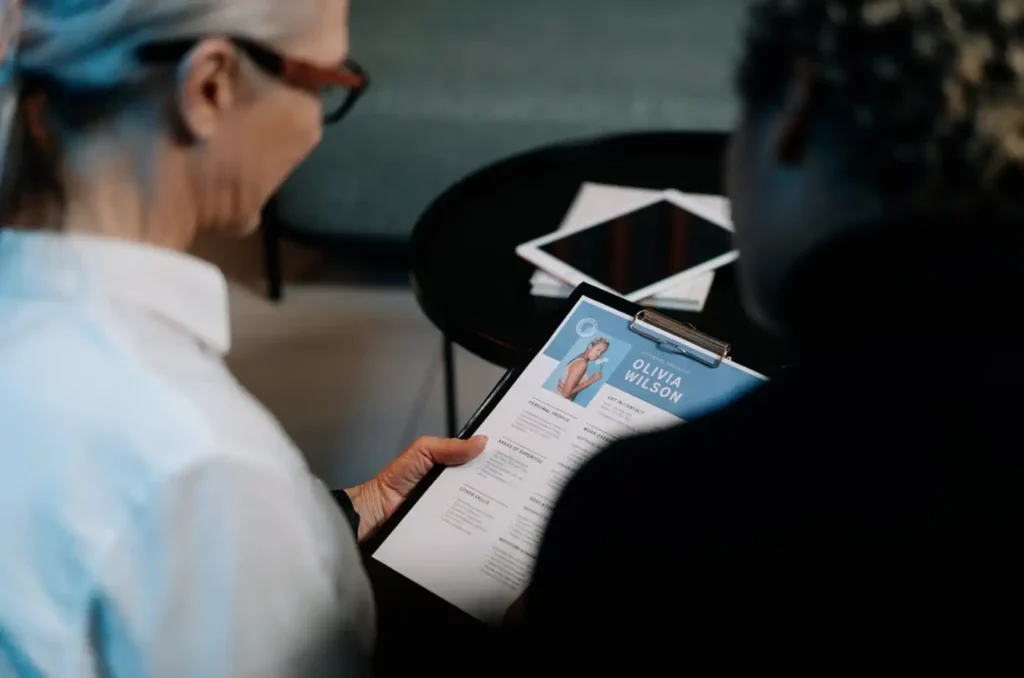
The intricacies of crafting a compelling resume have never been more vital in today's fast-paced and discerning corporate world. As you stand on the precipice of advancing to senior positions, you're not only competing with other equally qualified candidates but also against the ticking clock.
Astoundingly, hiring managers allocate a mere average of 6 seconds to scan each resume. Within this fleeting window, your professional narrative must not only grasp but also firmly hold their attention. A generic resume, reminiscent of your early or mid-career days, will no longer make the cut.
Instead, a targeted, precise, and impactful document is imperative to convey your readiness and suitability for roles at the zenith of the corporate ladder. This is where tailoring for senior positions becomes an indispensable strategy.

Understand the Nuance of Senior-Level Positions
When you're setting your sights on a senior-level role, you're essentially diving into a new realm of professional expectations. Unlike entry-level or mid-level positions, senior roles demand a more profound understanding of strategic leadership, organizational vision, and a proven track record of yielding impactful results.
Given the complexity, some individuals even consider employing resume writing services. Engaging experts can be a strategic move, ensuring your resume not only meets but exceeds the expectations set for senior-level roles.
Showcase Your Leadership Experience
A senior position isn't just about having years of experience; it's about demonstrating the quality of that experience. Have you led a team through a challenging project? Did you oversee an initiative that significantly impacted your company's bottom line?
Potential employers are on the lookout for candidates who have not just been part of the journey but have orchestrated it. Highlight instances where you've been at the helm, steering the ship, emphasizing your strategic vision, decision-making prowess, and ability to inspire and guide others.
Demonstrate Results and Impact
Results speak louder than words. As you transition to a senior role, your resume should shout out the tangible impact you've had on your previous organizations. Did you spearhead a project that resulted in a 20% revenue increase? Or perhaps you introduced a cost-saving measure that saved thousands? By quantifying your achievements, you underscore your value proposition. It shows you don't just do tasks; you drive change.
Highlight Relevant Skill Sets and Expertise
Your core competencies should align with the demands of the senior role you're targeting. If you're applying for a senior IT position, for instance, having advanced certifications or training in the latest technologies can set you apart.
But it's not just about technical skills; showcasing your problem-solving abilities, leadership qualities, and strategic planning capabilities can give you an edge. Continuous learning and adaptability are keys to thriving in senior roles, and your resume should reflect that.

Optimize for Keywords
In the digital age, before your resume reaches human eyes, it often has to pass through applicant tracking systems (ATS). These systems are designed to scan resumes for specific keywords related to the job description. If your resume lacks these keywords, it may never see the light of day, irrespective of your qualifications. Ensure you integrate pertinent keywords organically, representing your skills and experience authentically.
Streamline and Simplify
Contrary to what many believe, a senior-level resume doesn't mean cramming in every bit of your professional history. It's about presenting a cohesive narrative. If an experience from a decade ago doesn't resonate with your current career trajectory, consider omitting it. Clarity is paramount. Avoid jargon and ensure your message is conveyed concisely.
Network and Collect Feedback
Even the most meticulously crafted resumes can benefit from an external perspective. Share your resume with trusted peers, mentors, or individuals already in senior roles. Their feedback can offer invaluable insights, allowing you to refine your resume further. Moreover, networking can sometimes open doors that traditional job applications can't. Women looking for senior positions could for example join a network like Female Executive Search to connect and receive job offers for executives.
Adapt to the Company Culture and Values
Every company has its own unique ethos, and senior roles often demand a cultural fit as much as a skills match. Before sending out your resume, research the company's values, mission, and work culture. Tailor your resume subtly to reflect how you align with these, demonstrating that you're not just a fit for the job but for the organization as a whole.
Include a Strong Executive Summary
The beginning of your resume should capture attention immediately. Craft a compelling executive summary that offers a snapshot of your professional journey. Position yourself as the solution to the company's needs, encapsulating your achievements, skills, and vision in a succinct manner.

Final Thoughts
Crafting a resume tailored for senior positions is an investment. It's about presenting a refined version of your professional journey, emphasizing the breadth and depth of your experiences. With the right focus on leadership, results, skills, and alignment with company values, your resume can become the passport to the next pivotal phase in your career journey.

